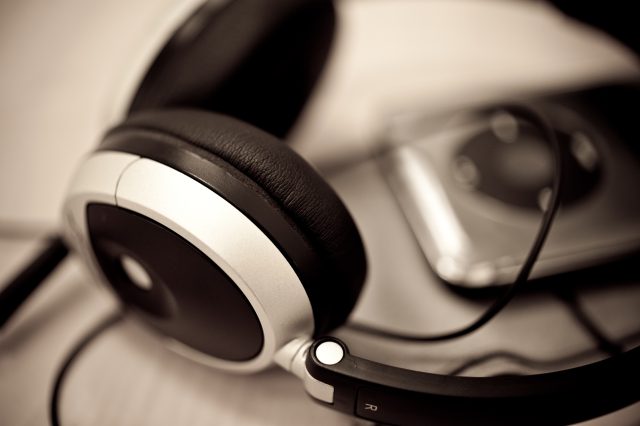
The owner of a patent on podcasting is hoping to snatch victory from the jaws of defeat.
Personal Audio and its owner, Jim Logan, lost their patent last year after lawyers from the Electronic Frontier Foundation showed the US Patent and Trademark Office that various types of Internet broadcasts pre-date the patent, which claims a 1996 priority date.
The podcasting patent became famous and received national media attention after it was used to sue several high-profile podcasters, including Adam Carolla, who raised $500,000 and fought back for a time before reaching a settlement in 2014. Personal Audio had also sued several big TV networks, and its case against CBS went to a jury in September 2014. The jury found the patent valid and awarded Personal Audio $1.3 million, a victory that Personal Audio's lawyers have noted in their appeal arguments.
The controversy is now in the hands of the US Court of Appeals for the Federal Circuit, the court that handles all patent appeals. A three-judge panel heard arguments over the matter earlier this month.
Just like CNN?
In its appeal brief (PDF) and at oral arguments, Personal Audio lawyer Jeremy Pitcock argues that his client’s patent, US Patent No. 8,112,504, is a significant improvement on two pieces of “prior art” that EFF successfully used to invalidate it at the US Patent and Trademark Office.
Those earlier systems include one used by CNN, which described its system for a “digital news magazine” in 1995. The other system comes from a 1996 article explaining an early Internet radio experiment by the Canadian Broadcasting Corporation (CBC), which broadcast online as early as 1993.
In a proceeding called an “inter partes review,” a board of judges at the Patent Trial and Appeal Board ruled in EFF’s favor, finding that Personal Audio didn’t create anything that hadn’t already been done by the CBC and CNN. On appeal, Pitcock writes that the earlier technology for downloading content from the Web was “deficient” because it disseminated “individual program selections one at a time.” The ‘504 patent describes putting out “a series of episodes… as said episodes become available” and organizing them all in one “compilation file.”
The CNN system created a new webpage at a new URL each day, which Pitcock argues is an important difference. The CNN prior art “does not disclose making multiple programs available at a given URL or creating an updated version of an HTML file” that shows both new and old episodes.
In Pitcock’s view, Jim Logan's patent claim “teaches” that a “series of episodes” refers to “multiple, sequentially-ordered, and distinct programs issuing at different times.”
Displaying media on one webpage, as opposed to multiple webpages, might seem like a small difference. But in the patent-speak employed by Personal Audio and its lawyers, those shifts in presentation are “teachings” that justify getting a new patent and the 20-year monopoly it entails.
Pitcock didn’t respond to requests for comment for this story. An EFF lawyer declined to add to earlier comments about the case, saying it’s in the hands of the Federal Circuit.
An appealing pivot
At oral argument, Personal Audio lawyer Jeremy Pitcock described his client’s “new apparatus” to the judges. It created a “compilation file” with both old and new episodes in it. That made it unlike the CNN system.
“Every day, a bunch of segments from that day’s newscast are made available at a single link,” said Pitcock, using inventors’ names to refer to the CBC and CNN prior art. “That information is never updated, is never changed. The next day, a different series of little segments is made available. It’s undisputed that’s how Compton/CNN and Patrick/CBC work.”
EFF lawyer Nick Brown countered that the Patent and Trial Appeal Board got it exactly right when they threw out the podcasting patent.
“What we have here is a pivot,” EFF lawyer Nick Brown told the panel when his turn came. “It’s an attempt to recast this argument that they lost below… and to turn it into an argument about a ‘series of episodes.’ The argument about a ‘series of episodes’ is about when the compilation file is updated. That’s exactly what CNN does. There’s no requirement that the same story [be updated].”
The matter is now in the hands of the panel. If EFF wins, the podcasting patent won’t have anywhere else to go.
In addition to the podcasting patent, Personal Audio also claims to own other basic audio technology. Personal Audio sued Apple over the iPod’s function to create playlists. After a 2011 trial, a jury awarded the patent-holding company $8 million.
reader comments
28